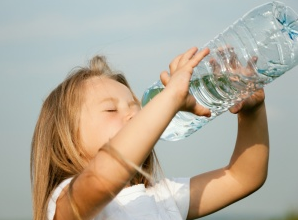City Water and Well Water

City Water
You’ve probably heard the fable about the town mouse and the county mouse – this blog could be called the town water and the country water. In cities, and in towns for that matter, we get what is referred to as “city” water through our local municipalities. Folks in the more suburban, rural or country settings may be using well water. For example, most of Ramona’s households are served by the Ramona Municipal Water District, yet it is estimated that roughly 1,000 homes in and around Ramona rely on their own wells.
Pros and Cons of City Water
In this two-part blog, we start by talking about city (or municipal) water, which is hard water. As you might expect, there are advantages and disadvantages to city water. On a positive note, cities and municipalities are responsible for testing the water to make sure it meets or exceeds EPA regulations, and it has been long assumed that the water from the faucet is fine for drinking and meets all other needs. To some degree this is true, but as we’ll discuss shortly that is not always the case. In its favor, city water is readily available – the water only needs to be turned on by your municipality and it should be flowing into your home. And city water is high in various minerals, such as calcium and magnesium, which can have some health benefits.
On the other side of the coin, there are concerns contaminants, such as lead, in city water; and in many cases rightfully so as evidenced by Flint Michigan, and a number of other towns and cities across the country. The hardness of hard water also creates soap curd, which interferes with the strength of cleaning products, and allows scaling to build up. This can clog pipes and fixtures and shorten the life of your water heater (including tankless water heaters). Iron is also often found which not only tastes bad but can stain plumbing fixtures and clothes. Then there is sulfur which can damage plumbing, and smells bad. The low pH levels in hard water can damage sinks, faucets, hot water tanks, and supply lines.
Filtering
When it comes to filtering, many people have a knee-jerk reaction and purchase a water filter for their kitchen sink. This is not a bad move, but it is only a minor precaution when you consider how many pipes water must travel through to get from a reservoir to your home. It is likely miles of pipe that were installed who knows how long ago, some of which are very likely in need of repair. Now consider the number of pollutants and chemicals that water may have come in contact with during that journey. Sure, there is filtering in the process, but unless the water is filtered and tested immediately before coming out of your faucets you cannot know for sure if you are getting clean water. And that means not only in your kitchen sink but the rest of your home.
No, we’re not trying to cause anyone to panic. Water does go through a lot of testing along the route to your home. And as I mentioned above, a filter on your faucet is not a bad thing. However, a better idea is to have a whole house filtration system installed which can reduce chemicals that can be bad for your health. A whole house water filter will also have a positive effect on the health of your skin and hair, and it can reduce the need to unclog, clean or repair pipes, plus it’s more environmentally friendly than buying bottled water for instance and also does not produce wastewater since it filters all the water coming into the home.
If you’re interested in finding out more about whole house filters, we’re happy to discuss the possibilities of installing one to provide cleaner water and most of all, peace of mind. Call Marklein Plumbing today!
